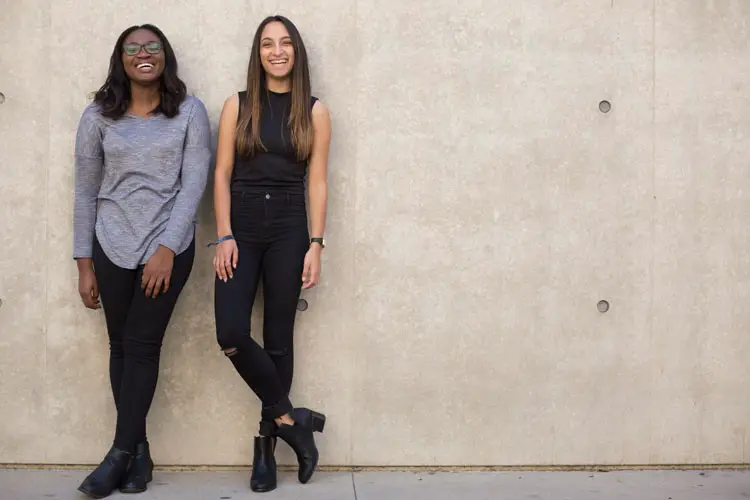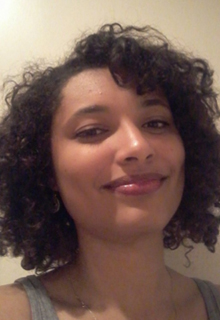When Justine Avoudikpon and Sofia Demay first met each other while studying abroad at the University of Leon in France, neither had any idea that they would collaborate to build an innovative new carpooling app,or a new friendship. On March 13, 2017, Avoudikpon and Demay will present their app, Swifte, to investors at the Student Startup Madness finals at SXSW. Seven other college startups will be in attendance to compete in the final round of the national competition, but winning first place is not a priority for the rideshare innovators. “We’ve kind of already won in a way, because of all these amazing connections we’ve made and the coach and just the opportunity to go regardless,” Demay says.
Student Startup Madness creator Sean Branagan agrees.
“You’re speaking in front of people you generally never would get an audience with. You’re meeting other entrepreneurs from schools across America that, at least by our measures, are really, really good…And on top of that you’re at South by Southwest, the epicenter of digital media for five to seven days every year.”
Avoudikpon, a fourth-year Finance major at the University of Georgia, and Demay, a fourth-year International Development and Entrepreneurship major at UCLA, have already presented Swifte at a number of other competitions, including the largest start-up competition in the Mediterranean, Banque Du Liban Accelerate 2016.
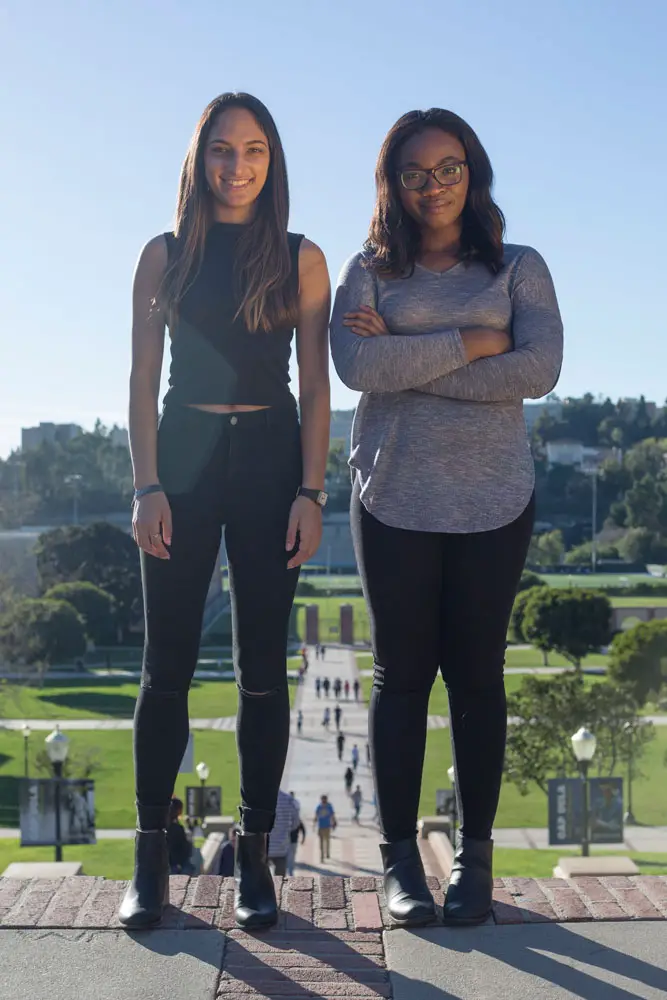
Before Swifte, both of them had pursued separate projects. Avoudikpon participated in national competitions in high school to gain funding for a restaurant business she wanted to start, while Demay worked in corporate and nonprofit environments before gaining experience with early stage start-ups.
Their idea for Swifte came while studying abroad in France, where both girls marveled at the popular carpooling systems in place. Even though they were two of only a few Americans studying at the University of Lyon that semester, their plans to hang out kept being thwarted by a variety of miscommunications and an incident in which Demay got hit by a motorcycle.
Upon returning to the U.S., they each independently started working in incubators, or accelerated business development classes, on carpooling apps for American university students. Before long, they realized that they were working on the same idea. “I was just posting about it on Facebook,” Avoudikpon explains, “Like, ‘I have this cool new app guys, you should check it out.’” Demay adds, “I saw what she was doing, and we got in contact and said, ‘Look, we want to do the same thing, why not help each other out?’”
That exact ethos is the driving force behind Swifte. The app connects drivers with riders who are going to similar destinations. Drivers charge fares that riders pay through the app, allowing them to use one car and split gas.
Since carpooling removes the hierarchical contractor-client relationship that characterizes apps such as Lyft and Uber, there is a greater chance for friendships to be built or enhanced, all because people are sharing resources to get to their respective destinations. While anybody can download and use the app, their marketing efforts are largely focused on university students, who often face transportation issues when it comes to socializing or visiting family. “Freshman year at Georgia I had no car,” Avoudikpon says. “I live in Atlanta, so going back and forth on the Megabus was super slow, or it just didn’t come at all, which was unfortunate. You’re just waiting for hours for the bus to come, but it never comes.” Adds Demay, “I feel like it really was a need that we both wanted to face. We were like, ‘You know what? If no one else is going to do something about it, maybe we should.’”
That self-starter attitude is exactly the kind of quality that Branagan, who teaches entrepreneurship at the Newhouse School at Syracuse University, hopes to celebrate and enhance through the Student Startup Madness competition. “The number one commonality of entrepreneurs is not that you’re born with it or you’re an outgoing person or you’re a technical person or any of that nonsense that we hear. The number one is [being] action-oriented, especially in the face of uncertainty. So, when markets and technologies and behaviors are changing, that’s when entrepreneurs seem to act. And that’s when a lot of other people don’t,” he says.
Two hundred student start-ups applied for this year for the tournament-style competition, with judges whittling the contestants down to 64, then 32, before choosing the groups that comprise this year’s “Entrepreneurial Eight.” Groups are judged based on four broad criteria: they must present “scalable digital businesses” with a lot of room for growth; they must have a strong team composed of multiple members with diverse skill-sets; they must have a large market, and they must have “traction,” meaning their apps have already been built and are already attracting customers.
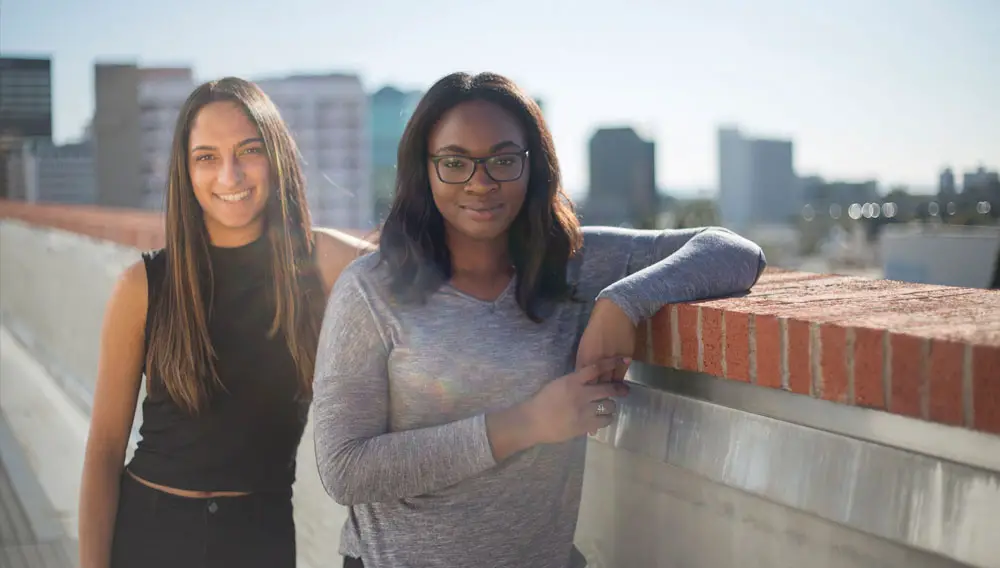
This year, Avoudikpon and Demay will be joined by teams from such schools as Carnegie Mellon, NYU, the University of Michigan and Case Western Reserve University. The entries are diverse, ranging from a website connecting students who suffer from chronic health problems, to interactive teddy bears that allow people separated by thousands of miles to hug each other. “All of the people that are involved with Student Startup Madness believe in the power of entrepreneurship on campus,” Branagan explains. “That it’s better to start something and learn, than study it or think about it or take a job and hope later you’re going to start it. Your odds of success increase the sooner you start; the more you start the more you learn. It’s a learn-by-doing kind of thing.”
The competition will provide Swifte with a lot of exposure, something the duo is always on the lookout for. “We’re really trying to just get our name out there, especially because it’s a student driven competition,” says Demay. “We’re going to some [competitions] in the future that are for a wide audience, so it’s kind of nice to be in one that is catering to students and toward investors who are interested in investing in student run start-ups.” They are also interested in “getting the SXSW group to pioneer” the launch of their new feature, which involves creating groups for events.
One of more mundane challenges so far has been raising money. Much of their funding has come from their own savings, as well as the help of family and friends. Gaining funding from investors has been a paradoxical process, with investors typically interested in funding start-ups that have verifiable results—results that cost money to achieve. Now that they are starting to gain “traction,” however, the path to more money has become a little less toilsome.
Enthusiastic support from fellow entrepreneurs has made the struggle worthwhile. “Getting the validation from people was really nice,” Demay reflects. “To be able to get feedback from students in Lebanon, who said, ‘Look, one day you should bring this to Lebanon, we would love to help you.’ All the connections we were able to make from that were really great.”
Participating in competitions has accelerated Avoudikpon and Demay’s learning process by teaching them how to effectively communicate with investors. Referring to the Banque Du Liban Accelerate competition, Demay says, “Every five minutes we would have three people coming up and speaking to us. Throughout that experience we started just saying certain things, seeing what would work, what wouldn’t work…I mean, we’ve never owned a business before. How do you do financial projections; it was a huge learning curve.”
It has also brought them firsthand knowledge of the challenges associated with being women of color in a white, male-dominated field. Avoudikpon says, “In Lebanon a person walking by asked us, ‘So, is it just you two?’ and we’re just like, ‘Yeah…’” “Yeah,” Demay continues, “We’ve gotten some comments like, ‘Oh wow, you started this?’ and we’re like, ‘Why couldn’t we?’ It’s hard to always get the level of respect that you feel like you deserve, but at least we have each other. It would be a lot harder if we were one founder.”
Indeed, Demay and Avoudikpon make it a point to surround themselves with an elaborate support system composed of teachers, advisors, fellow students and each other. When Avoudikpon first came up with the idea for the app, she was encouraged by an advisor that she met up with in Barcelona during her semester abroad. “I was like, ‘I have this idea I want to start,’ and he said, ‘Well, why not do it?’ I responded, ‘Because I’m broke? Because I have no money? And I don’t know how to start an app.’”
Despite her misgivings, her advisor sent her helpful information about the basics of running a start-up, forging a business relationship that continues today.
Since its conception in March 2016, the Swifte team has expanded to ten members, some of them friends of Demay and Avoudikpon, some of them interns through University of Georgia’s International Student Identity Card (ISIC) program. She gained another advisor through her participation in the WBENC SEP, a women’s business conference, in 2016. Through Student Startup Madness, both Demay and Avoudikpon gained a coach to provide feedback and support in preparation for the event.
Avoudikpon and Demay’s appreciation for the role of community in their success is palpable when they talk about their vision for Swifte. “We really want to create something that’s more than a carpool app,” Demay describes. “We want you to be able to meet other students; we want you to have valuable, engaging conversations; we want you to expand your community while helping the environment, saving CO2, saving time and money.”
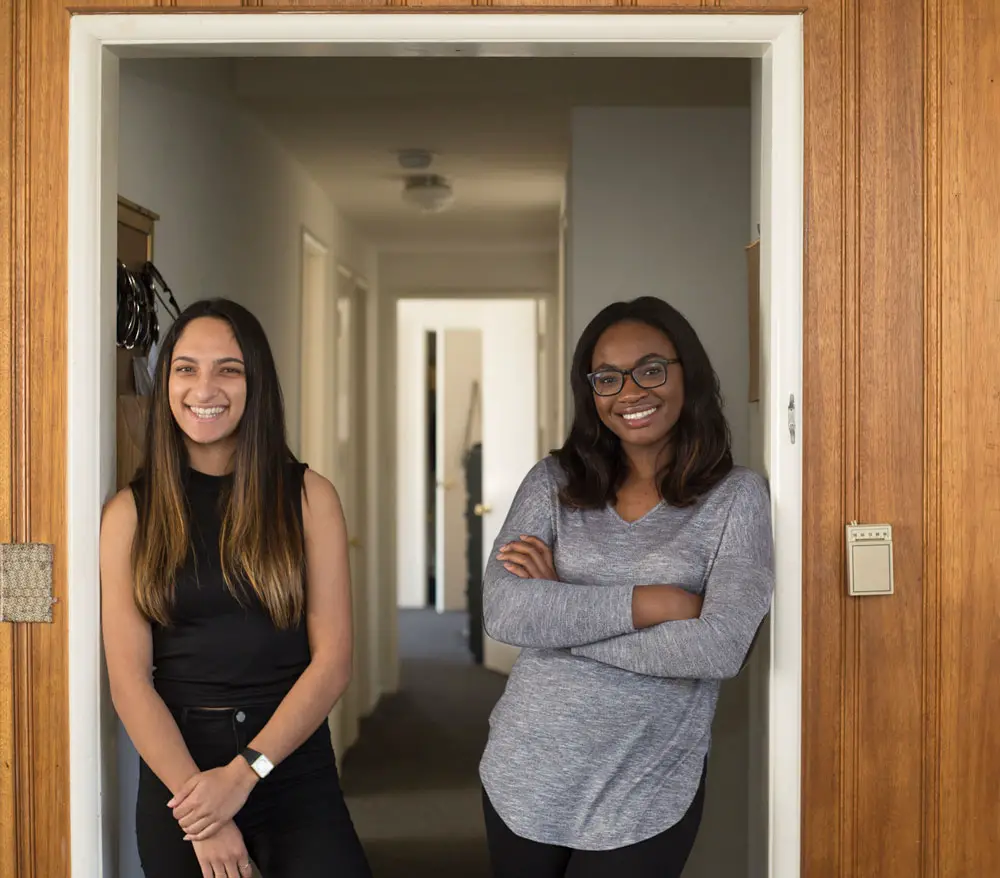
Avoudikpon adds, “I carpooled one time from Lyon to Nice. There were five of us in the car, so he took us to the nice neighborhood of Lyon…he didn’t have to do that, but he went out of his way just for us because we were tourists. That could be so cool for students to just find a person on campus who lives near you who may become your best friend in the future. Right now I use Swifte in Atlanta and I have friends from just that experience alone.” “These are lasting relationships most of the time, because you’re in the same community,” says Demay.
The competitive aspect of Student Startup Madness may seem to contradict with their harmonious quest, but Branagan feels differently. “There’s different ways that you are competitive. There’s the competitive ‘I want to mash you down to nothing,’ and there’s the competitive ‘I want to be better than you at this, and you want to be better than me, and in the end we both get better.’ And that’s the competition that we’re really driving for.”
“Getting better” at entrepreneurship seems to be an increasingly important goal for those looking to stay on top of current economic trends. “I do really feel like entrepreneurship is where the change is going to happen in the future,” Demay says. “People are jumping around jobs more; people are willing to try new things. I feel like as long as there’s still those incentives out there, to be able to make large profits and be able to make social differences or help change the world, entrepreneurship is just going to keep getting larger and larger.”
Branagan concurs. “You’ve heard things like, ‘Oh, well, the market’s hot right now, it’s a bubble,’ and things along those lines. And, no, this is a boom. I was in the bubble; it wasn’t like this at all. It was a lot of guessing. And this actually has users, and successes and failures that are driven by markets instead of just investor money. So it’s an exciting time.”
Though the field may be complicated, both diplomatically and professionally, the pair’s favorite component of entrepreneurship is the relationships they have forged. Demay says, “It’s been incredible to have an idea that we do wholeheartedly believe in. Both of us are so invested; we really feel like this is it. And so to be able to have all these mentors and these support systems and friends become involved has been a really cool experience.”


